
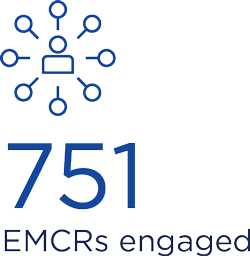
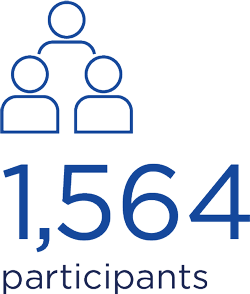
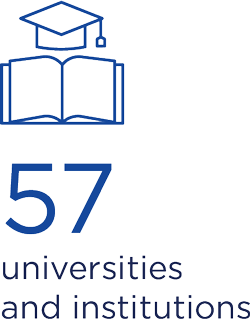
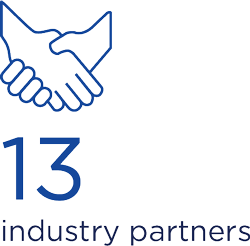

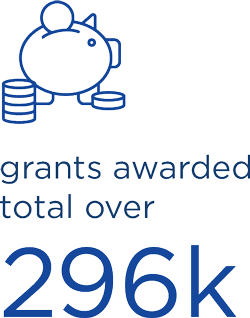
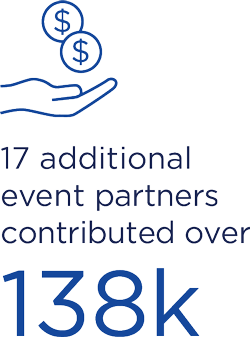
The AI in Science Conference, hosted by the Australian National University and CSIRO, brought together more than 75 EMCRs to explore AI’s ethical, social, and environmental dimensions in scientific research. Expert speakers from academia, industry and government addressed AI’s sustainability challenges, industry applications, ethical considerations and productivity benefits.
Discussions highlighted AI biases, ecological impact, and the need for ethical standards. A networking activity provided diverse perspectives on AI’s role in science over the next decade. Outreach events have commenced, with the both the outreach events being highly successful and well attended.
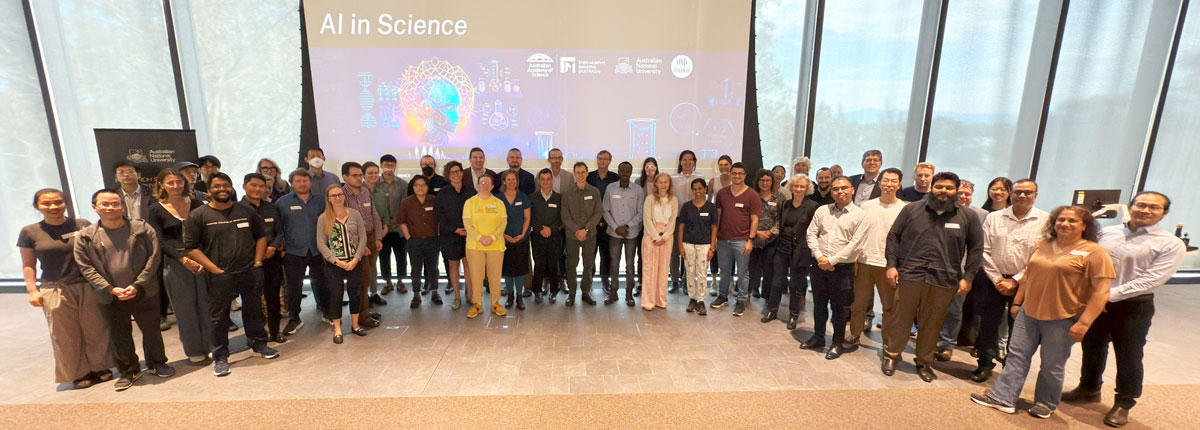
The Genomics Our Way online course, launched on 31 March 2025, is the first of its kind, developed through the Australian Alliance for Indigenous Genomics (ALIGN) and the University of Adelaide. This free course intends to equip EMCRs with the knowledge and skills to conduct ethical and culturally respectful genomics research with Aboriginal and Torres Strait Islander communities. As of 27 August 2025, the course had seen 490 enrolments. Registrations are also expected from Aotearoa New Zealand, Canada, the Americas, Africa and Europe.
The course introduces the Indigenous Research Lifecycle, ensuring Indigenous communities are active stakeholders throughout research. It also provides technical training in advanced genomics techniques and serves as an ongoing professional development resource.
To reinforce cultural safety and Indigenous leadership, the team collaborated with the Australian Alliance for Genomic and Health’s governance board, engaged Indigenous businesses for course production, and partnered with Kaurna Yerta Aboriginal Corporation for cultural context. The course has been reviewed and approved by the ALIGN National Indigenous Governance Council, with registration now open for EMCRs and students.
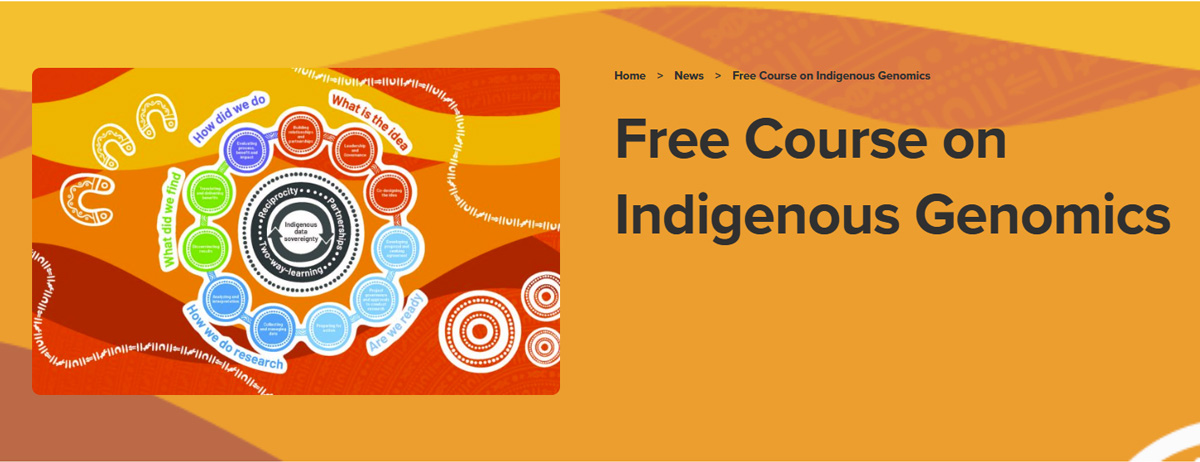
Held on 11 November 2024 at the Australian Catholic University North Sydney campus, the National EMCR Nursing and Midwifery Research Symposium brought together nearly 100 participants, including 70 EMCRs from six states and territories. The event fostered collaboration between researchers, industry leaders and consumers, with travel grants supporting EMCRs from other states.
Key discussions addressed the post-PhD research cliff and the need for greater national funding to support EMCRs. With nurses and midwives forming 54% of the healthcare workforce, the symposium highlighted the potential of nursing and midwifery-led research to improve patient care. A major outcome is the National Nursing and Midwifery EMCR Advocacy Roadmap, launched in April 2025, to guide research expansion and workforce planning.
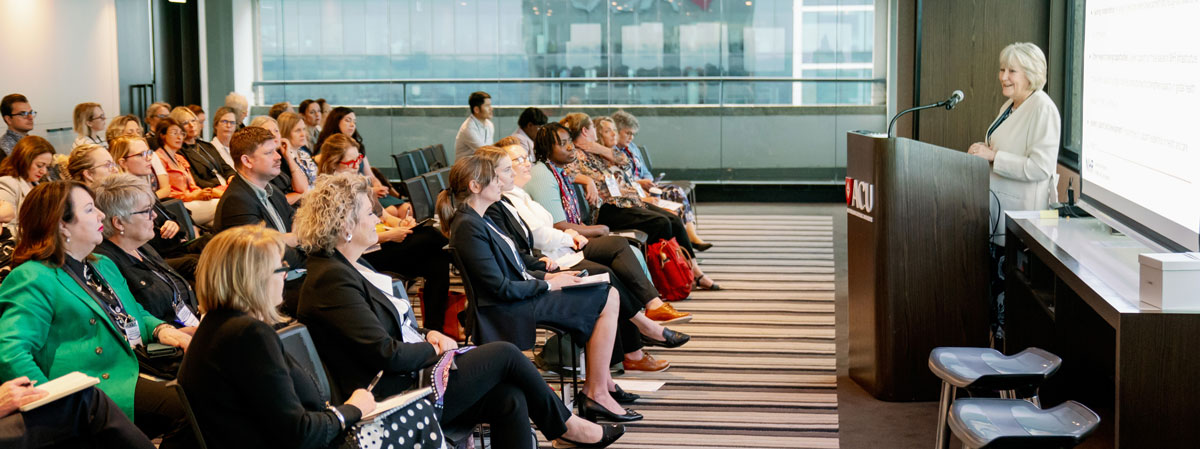
A conference held in July 2024 brought together 180 attendees from research and industry to explore optimisation technologies across multiple sectors. The event featured 53 talks, three keynote addresses, case studies and networking sessions – engaging 45 EMCRs, with 25 presenting their research.
The conference strengthened industry-academia collaboration, highlighted career pathways and facilitated new research opportunities. A special edition of the journal Optimization Letters will publish key findings, reinforcing the event’s success in advancing optimisation research and fostering impactful partnerships.
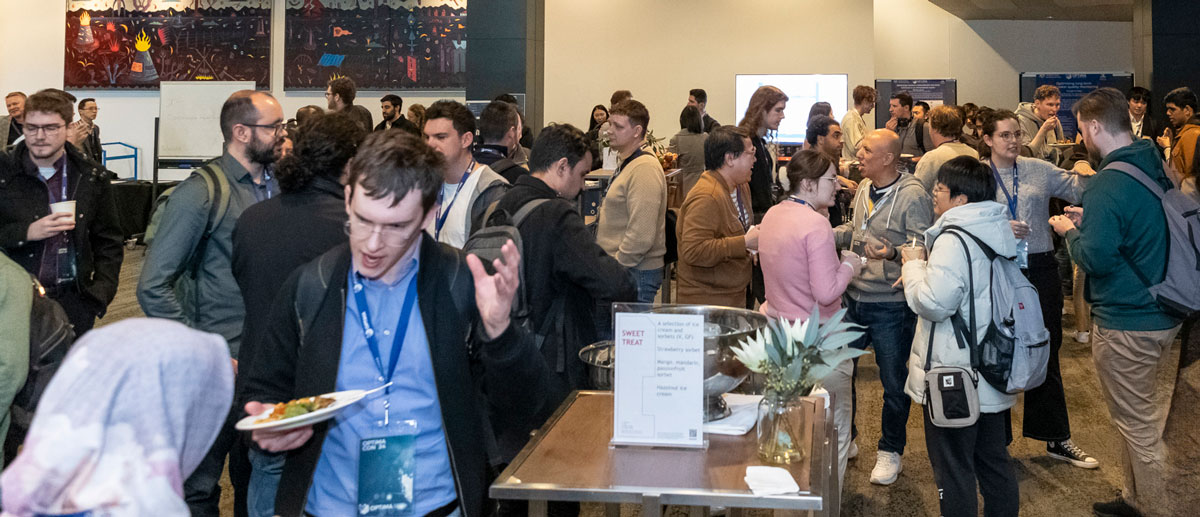
The plant-soil ecology horizon scan activity ended with a workshop on 8 December 2024 in Melbourne. The project engaged 64 experts from academia, industry, government and research agencies. Two online surveys helped identify key issues in plant-soil ecology, which were further refined at the workshop attended by 33 participants, 70% of whom were EMCRs.
The project benefited 61 EMCRs, fostering national and international collaboration, with representation from multiple Australian states and one New Zealand researcher. As the first application of horizon scanning methodologies in Australian plant-soil ecology research, this initiative has strengthened EMCR engagement, research networks and priority setting for future studies. It is expected to drive collaborative publications and inform grant proposals, shaping the future of plant-soil ecology research.
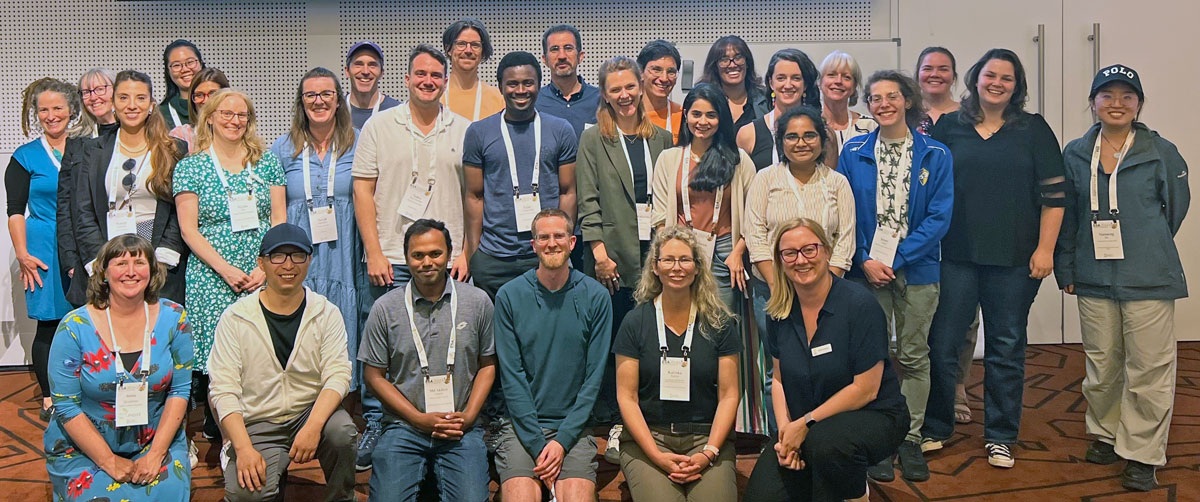
The Viruses of Microbes 2024 meeting, held in July 2024, featured a pre-meeting workshop: Masterclass in Communication for EMCRs. The session trained 85 EMCRs in science communication, grant and job applications and presentation skills, addressing a key gap in professional development.
Attendees commended the high-quality practical training, with many applying the techniques during the conference, and the event’s broader success was highlighted in a Cairns Convention Centre media post.
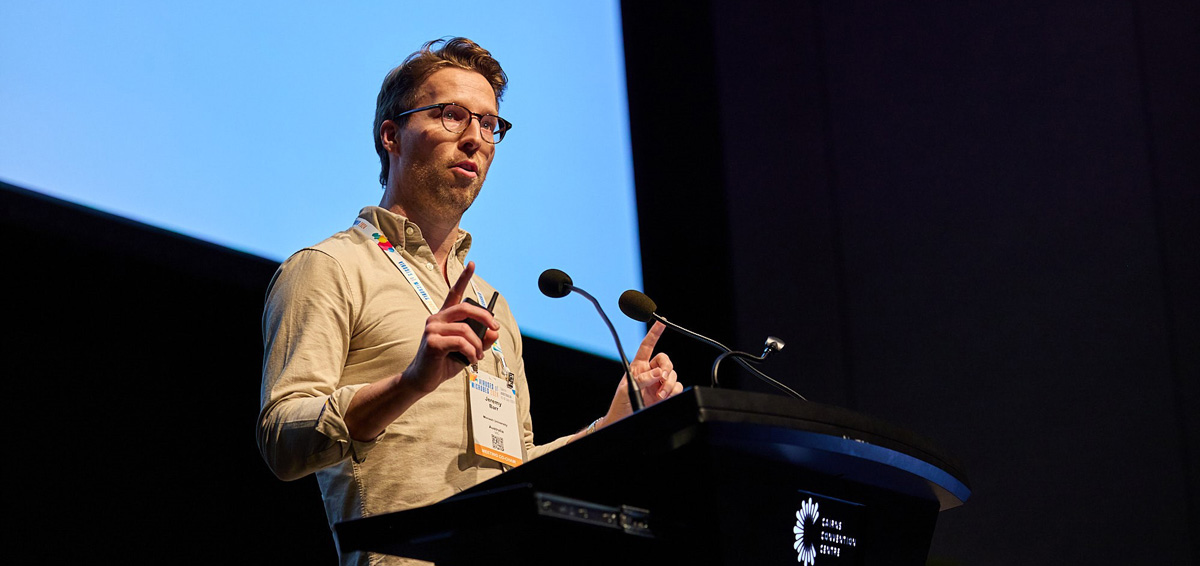
The EMCR Hackathon took place at the 2024 ABACBS Conference, successfully engaging 50 EMCRs and four established researchers. The event, organised by a diverse committee of 10 EMCRs, facilitated networking, leadership development and interdisciplinary collaboration. Nineteen postdoctoral researchers received scholarships to attend the event. Due to its success, the Hackathon has been established as an annual event, ensuring continued support for EMCRs through networking, peer learning and leadership training in the bioinformatics and computational biology community.

The Lipid Network (TLN) aims to build a global database of researchers, clinicians, industry and societies. The network was soft-launched at the Australian Lipids Meeting from 30 September to 3 October 2024, where a draft website, database entry form and search tool were showcased. TLN was also promoted through the conference program, social media and visuals during the meeting, reinforcing its visibility and engagement with industry and society representatives.
The TLN working group has transitioned into a formal committee, and interest from the lipid research community has grown. TLN is now positioned to support collaborative efforts, expand its database and become a central resource in lipid science.
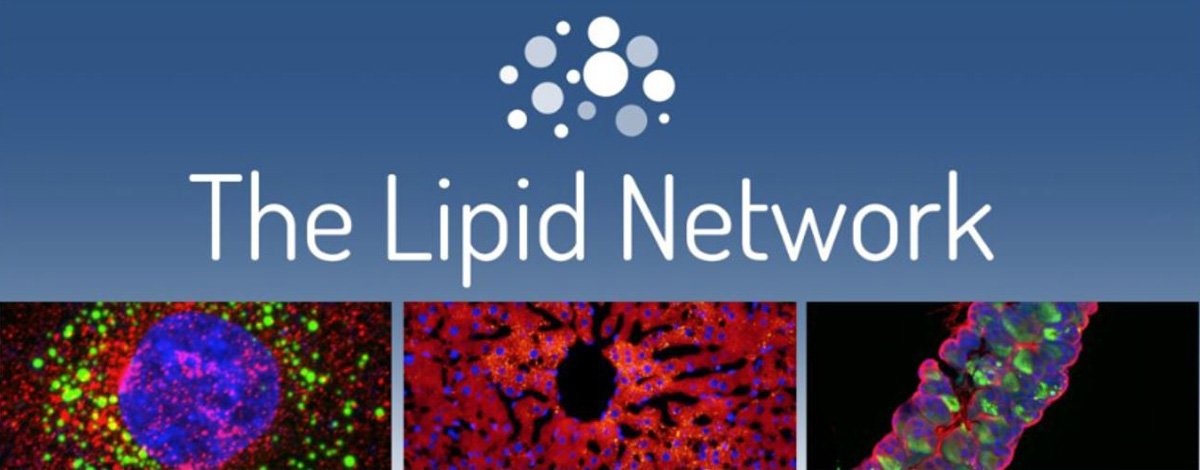
A pre-conference workshop for clinician-researchers in suicide prevention was held on 29 April 2024 featuring presentations, a panel discussion, a priority-setting hackathon and networking opportunities, all aimed at supporting early- and mid- career clinician-researchers.
The event resulted in a peer-reviewed journal article published in 2025, and the creation of a community of practices that participants have actively engaged with since the event. This initiative has laid a strong foundation for sustained collaboration and career development within the suicide prevention clinician-researcher community.
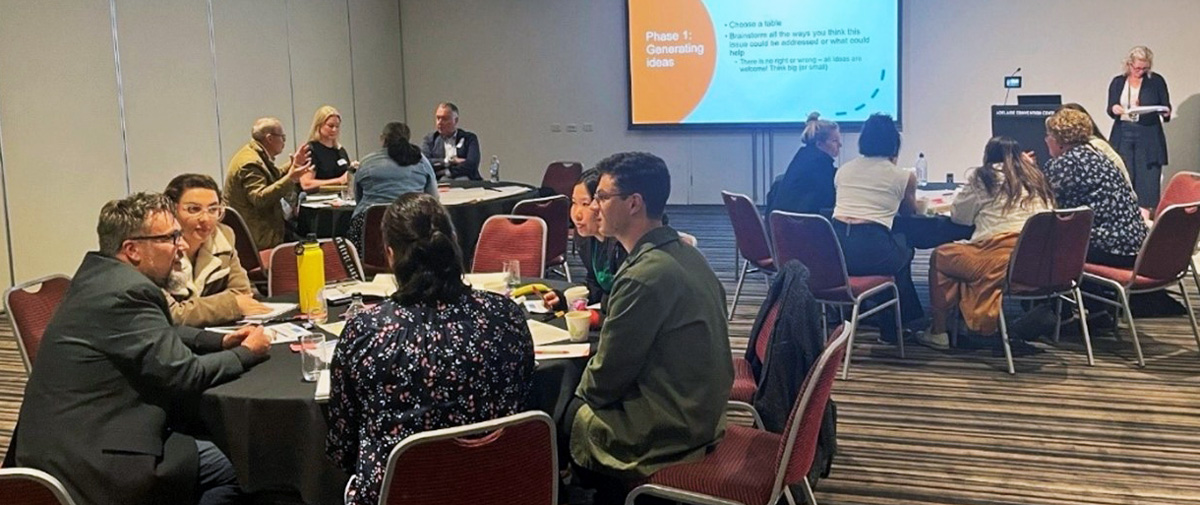
To mark the 20th anniversary of the Advanced Data Mining and Applications (ADMA) Conference, a series of first-time initiatives were introduced to support EMCRs. These included six travel grants, a distinguished young scientist panel and a networking event.
All six EMCR travel recipients participated in a panel discussion with five invited distinguished young researchers, where they engaged in in-depth dialogue on research and leadership. This marks the first implementation of EMCR travel grants and the first distinguished young scientist panel in ADMA’s history, all contributing to enhanced engagement, visibility and development opportunities for EMCRs.
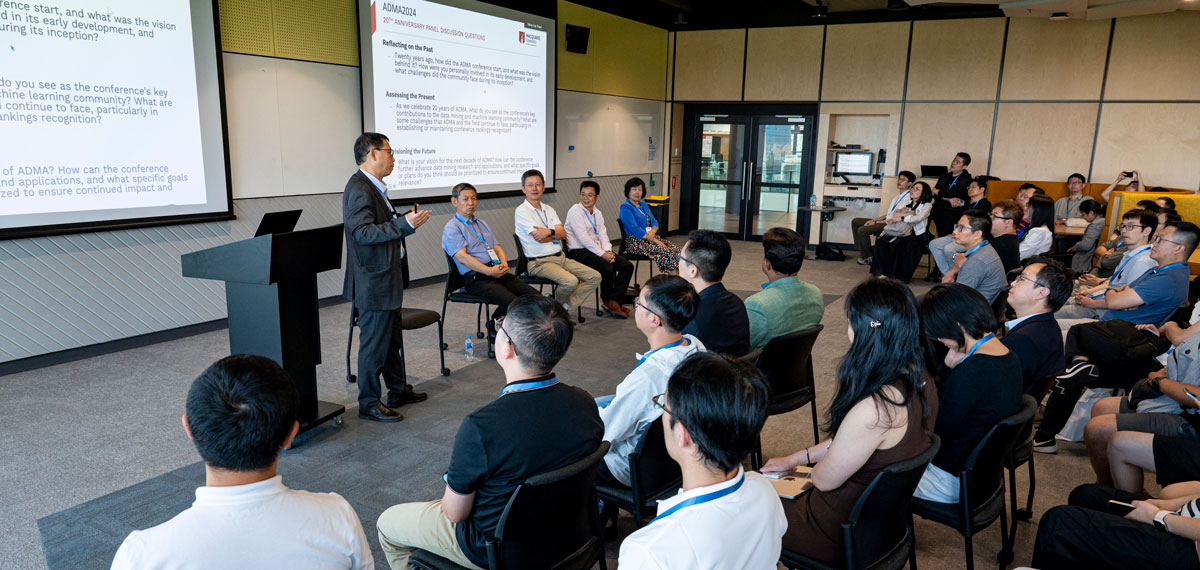
Nineteen EMCRS participated in a range of international and national conferences, symposiums and research visits across 11 countries, including Australia, presenting their research and engaging with global leaders in fields such as ecology, neuropsychology, agriculture, chemistry, cryptography, neuroscience and more.
These events offered critical opportunities for knowledge exchange, expert feedback and professional development. EMCRs benefited from expanding their international networks, forming new research collaborations, gaining exposure, and refining research and teaching directions. Participation also enhanced visibility and strengthened contributions to both academic and policy-impactful research.
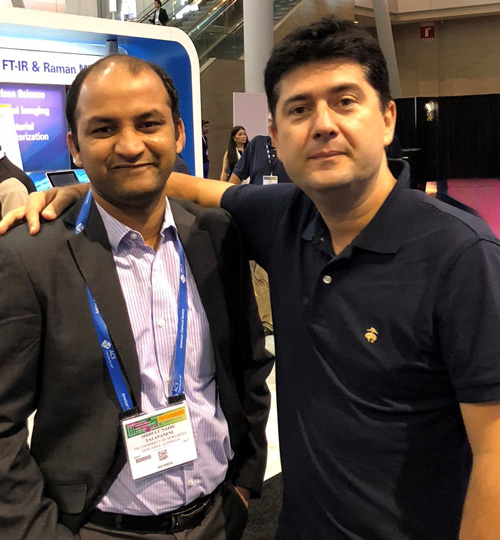
Engaging in the ACS National Meeting Fall 2024 has significantly contributed to my career development as an early-career researcher. Presenting my research at such a prestigious platform enhanced my communication skills and increased the visibility of my work among leading scientists and industry professionals. The opportunity to attend talks and panel discussions exposed me to cutting-edge advancements across diverse fields, broadening my knowledge and sparking new ideas for future research. Additionally, the conference provided an excellent networking platform, enabling me to connect with experts, potential collaborators, and mentors who offered valuable insights and advice.
— Dr Siddulu Naidu Talapaneni, Research Fellow, University of New South Wales
My presentation at the Cephalopod Neuroscience Conference 2024 and the workshop showcased the most updated knowledge of cephalopod neuroanatomy and connectomics, along with valuable feedback throughout the discussion during the conference. Attending this event gained recognition of my work and increased my visibility in the cephalopod neuroscience community. This also led to two new international collaborations with experts from Switzerland and USA after the conference.
— Dr Wen-Sung Chung, Postdoctoral Research Fellow, Queensland Brain Institute, University of Queensland
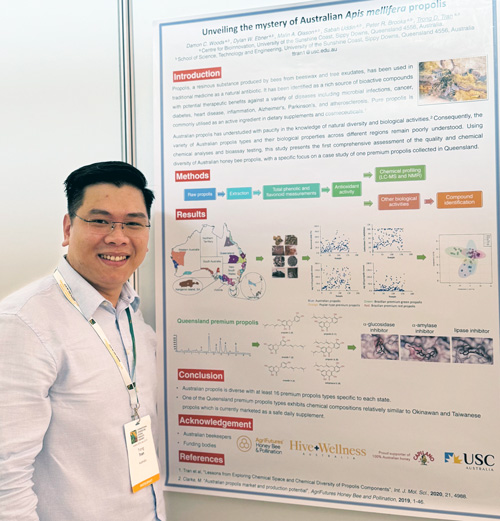
Participation in the International Congress On Natural Products Research provided me with several opportunities to share my Australian propolis research to international researchers, to learn and update new knowledge in the field of natural product research, and to network with new colleagues from other countries. The use of mass spectroscopy-based metabolomic and advanced nuclear magnetic resonance techniques in natural product research I learned from the congress will be applied in my teaching and research activities to train my undergraduates, including honours students and PhD students, on my return to Australia.
— Dr Trong Tran, Senior Lecturer, University of the Sunshine Coast
With the Participation Support grant, I was able to bring my nearly-three-year-old daughter and 12-year-old son with me while attending the International Conference on Nanoscience and Nanotechnology 2024 in Melbourne. This has provided opportunities for me to fully engage with conference activities without worrying about my little girl or feeling guilty to be away from my children. The grant really helps researchers with primary care responsibility to balance between work and life.
— Dr Bin Guan, Research Associate, University of South Australia
This grant has significantly contributed to my development as an EMCR by providing the opportunity to attend two international conferences. These events were invaluable for networking and fostering collaborations with international delegates. Notably, my attendance at the Global Neuropsychology Congress allowed me to establish a new collaboration with researchers from the Murdoch Children's Research Institute (MCRI) in Melbourne. This engagement has expanded my professional network and enriched my knowledge, positioning me to contribute more meaningfully to the field while strengthening my research profile.
— Dr Jack Nguyen, Research Fellow, Monash University
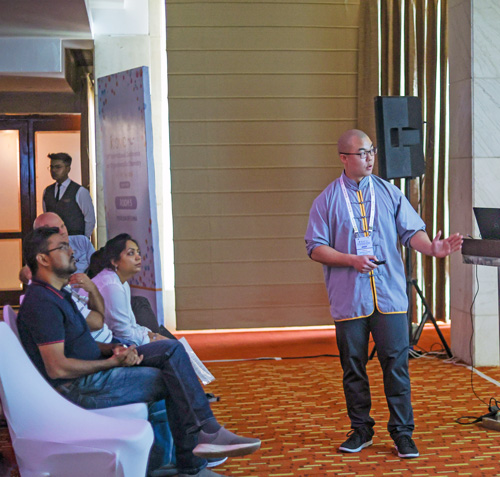
The International Conference on Organometallic Chemistry gathered experts from all sub-fields within the field of organometallic chemistry. As such, exposure to these sub-fields at this conference otherwise beyond the local Australian organometallic chemistry community has greatly expanded my field-of-view and allowed me to develop world-class research projects that are competitive and innovative on an international level. The greatest benefit I have received from engaging in this conference is exposure to international experts in my field and experience firsthand their research and the way in which their research has been developed and curated.
— Dr Curtis Ho, Lecturer, University of Tasmania
© 2026 Australian Academy of Science